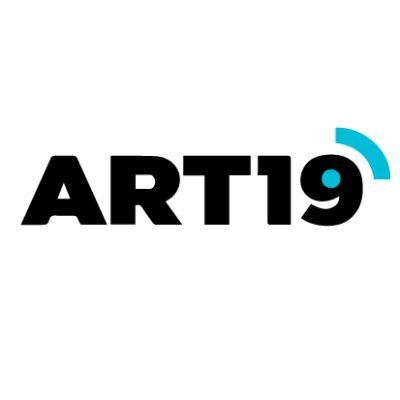Mock sample for your project: ART19 Content API Documentation
Integrate with "ART19 Content API Documentation" from art19.com in no time with Mockoon's ready to use mock sample

ART19 Content API Documentation
art19.com
Version: 1.0.0
Speed up your application development by using "ART19 Content API Documentation" ready-to-use mock sample. Mocking this API will allow you to start working in no time. No more accounts to create, API keys to provision, accesses to configure, unplanned downtime, just work.
It also improves your integration tests' quality and reliability by accounting for random failures, slow response time, etc.
Description
The ART19 Content API conforms to the JSON:API specification.
API requests MUST use the HTTP Accept header:
Accept: application/vnd.api+json
API requests MUST be authenticated using the HTTP Authorization header:
Authorization: Token token="your-token", credential="your-credential"
General Notes
Some query parameters use unencoded [ and ] characters simply for readability. Defaults, examples, and
possible values are additionally rendered in double quotes for readability. In practice, query parameters should
not have quotes around the values (e.g., foo=bar is valid, not foo="bar"), and both query parameter keys
and values must be percent-encoded, per the requirements in RFC 3986 § 3.4.
Rate Limiting
In order to provide a fair distribution of available resources, all API calls are subject to rate limits.
If you exceed the number of API calls per minute granted to your credential, a 429 Too Many Requests
error response will be returned.
In that case, a Retry-After header MAY be included in the response, describing the number of seconds
after which a request can be retried.
If you run into a high number of 429 errors, please reach out to ART19 Support to adjust your rate limit.
Example
In the following example the request can be retried after waiting for 21 seconds:
HTTP/1.1 429 Too Many Requests
Content-Type: text/html
Retry-After: 21
Pagination
Requests to collection endpoints SHOULD provide pagination parameters.
Some endpoints REQUIRE pagination parameters to be provided.
Whenever pagination is provided, it MUST be valid.
Failing to provide pagination when it is required or providing wrong or incomplete pagination
always results in a 400 Bad Request error response.
The page numbering starts with 1 and the maximum page size (if not otherwise documented
on an endpoint) is 100. Pagination MUST NOT be specified if requesting a list of IDs (using an ids[] parameter).
Providing invalid values for page number or page size, as well as providing only a page number or only a page size,
is considered an error. Pagination is provided like this:
page[number]=1&page[size]=25
Responses conform to the JSON:API specification's pagination section
by including pagination links. Your requested page size will be carried into the pagination links.
Sorting
Requests to collection endpoints usually accept a sort parameter. Please refer to the
JSON:API Specification's sorting section for further details.
Relationship Linking
Currently, resources return all of their relationships, in no particular order, pursuant to how relationships
should be returned according to the JSON:API specification. Consumers of this API
MUST NOT make assumptions about the order of these collections. Even though this data is not currently paginated, consumers MUST support
paginating relationships per the JSON:API specification if this data is important for their application.
Other APIs in the same category
Datastream API

Firebase Management API

Display & Video 360 API

Drive API

Cloud Filestore API

Search Ads 360 API

TimesTags API

Content API for Shopping
DoubleClick Bid Manager API

TheTVDB API v3
How to use this API documentation
You may browse the API routes without authentication, but if you wish to send requests to the API and see response data, then you must authenticate.
Obtain a JWT token by POSTing to the /login route in the Authentication section with your API key and credentials.
Paste the JWT token from the response into the "JWT Token" field at the top of the page and click the 'Add Token' button.
You will now be able to use the remaining routes to send requests to the API and get a response.
Language Selection
Language selection is done via the Accept-Language header. At the moment, you may only pass one language abbreviation in the header at a time. Valid language abbreviations can be found at the /languages route..
Authentication
Authentication to use the API is similar to the How-to section above. Users must POST to the /login route with their API key and credentials in the following format in order to obtain a JWT token.
{"apikey":"APIKEY","username":"USERNAME","userkey":"USERKEY"}
Note that the username and key are ONLY required for the /user routes. The user's key is labled Account Identifier in the account section of the main site.
The token is then used in all subsequent requests by providing it in the Authorization header. The header will look like: Authorization: Bearer . Currently, the token expires after 24 hours. You can GET the /refresh_token route to extend that expiration date.
Versioning
You may request a different version of the API by including an Accept header in your request with the following format: Accept:application/vnd.thetvdb.v$VERSION. This documentation automatically uses the version seen at the top and bottom of the page.
